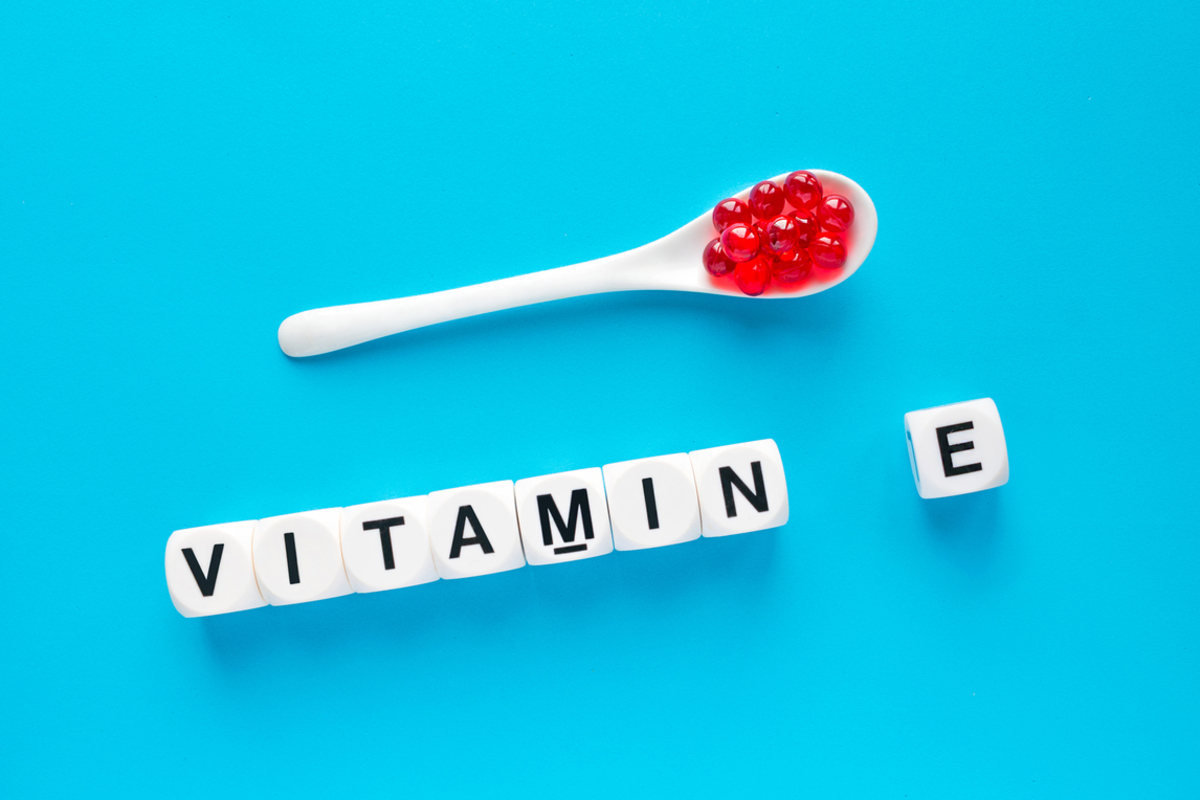Alzheimer’s disease is shockingly common in the modern world, and the rate of deaths due to Alzheimer's has also risen drastically in the last two decades. When you do a quick search on Google, one of the first things you are likely to come across are advertisements for numerous concoctions and remedies that can supposedly treat or manage Alzheimer’s.
A lot of these treatments are completely worthless, while others can indeed improve Alzheimer's symptoms, slow their progression, or reduce someone's risk of developing Alzheimer's disease in the first place.

What is Vitamin E?
Vitamin E is one of the four main fat-soluble vitamins that our bodies need to function on a daily basis. It is also considered a very powerful anti-oxidant.
Our bodies need this type of compound because it is able to keep our own immune systems in check. When the body comes in contact with any foreign antigen, an immune reaction will work to neutralize the threat.
This reaction does have some collateral damage, however. It produces free-radical species. A very scary name for sure, but the term may exaggerate the danger we are actually in. Nevertheless, having a high number of free-radical species throughout our lifetime can predispose us to tissue damage throughout the body. A lot of our cells are very resilient and will be able to self-repair — but some cells are very vulnerable to damage because they cannot self-repair. These would be cells like nerves and brain tissue.
The role of vitamin E in this situation is to regulate the production of these free-radical species. It essentially has the job of "garbage collector" for our immune system by removing these side effects of a immune reaction and disposing of them safely so they are unable to cause further damage to the rest of our body.
The function of vitamin E has been well-known for a long period of time, but changes in medicine and medical practice in the last few decades have made vitamin E supplementation less and less common. In the 1980s, it was believed that nearly 40 percent of women and 50 percent of men were taking vitamin E supplements, but fast-forward to the modern era and these numbers are much closer to 10 percent.
Why have people stopped taking vitamin E supplements in recent decades? A reason for this sharp decline could be because therapies to cure conditions have improved dramatically in the last few decades, reducing the need for prophylactic care.
Can vitamin E play a role in managing Alzheimer's disease?
Before the possibility that vitamin E may help is dismissed without much thought, it is prudent to see if any scientific papers advocate for the use of vitamin E supplements in the treatment of Alzheimer’s disease. In one such paper, this is exactly what was tested.
In one trial done on patients suffering from mild and moderate Alzheimer’s Disease, over 600 patients were given either a placebo, vitamin E, or memantine to determine if there was any merit to this supplementation.
Patients who received vitamin E were given 2000 IU per day and the standardized score of Activities of Daily Living (ADL — a checklist of self-care activities to monitor a decline in self-sufficiency in patients) was used to gauge whether the supplements had any impact. Over the span of the follow-up visits, a period that lasted over two years, it was determined that patients who received vitamin E supplementation had a significantly slower functional decline than those who had received just the placebo.
This finding is surprising due to fact that the therapeutic use of vitamin E has pivoted dramatically in the last few decades. The data clearly points to the possibility that vitamin E supplementation has a very important role in the treatment of patients suffering from moderate forms of Alzheimer’s disease.
Even if you want to think of the potential benefits of vitamin E supplements as getting six months longer with someone you love with Alzheimer’s disease, that is a very significant amount of time to enjoy each other's company.
The fact that patients who took vitamin E supplements also required less care shows that they are easier to care for at home and are mostly independent. This fact surely improves their quality of life and can stave off more severe components of Alzheimer’s, like depression. It can also dramatically improve the quality of life of primary caregivers, who experience significant amounts of stress and worry as they care for a loved-one with Alzheimer's disease.
What this journal also did mention is that it seems that the body does a better job at utilizing vitamin E as a dietary product instead of as a supplement, so you may want to look into adding more vitamin E to your daily diet rather than taking a pill. Even if the scientific community may not be fully behind the idea yet, vitamin E toxicity is very rare and if there are studies showing the benefits of this compound even in a small group of patients, it may be worthwhile to try to see if it can make a difference for someone you know suffering from Alzheimer’s disease.


Your thoughts on this